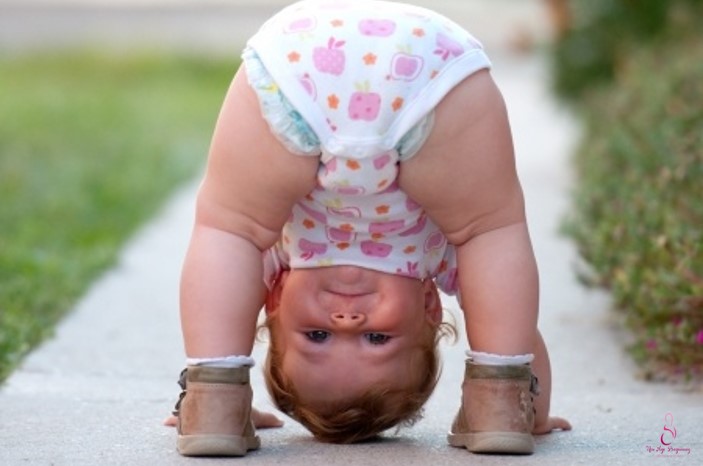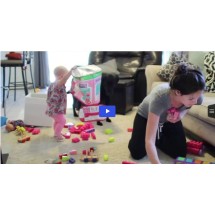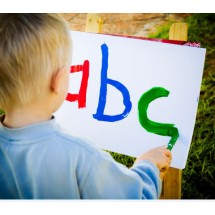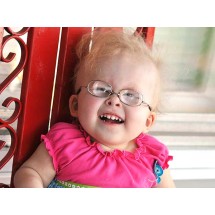
You may find yourself yelling at your toddler, especially when it seems effective in getting your child not to do something? You think it is harmless since yelling is not spanking and no physical harm is done to the child?
However, research had showed that yelling at your child can be as bad as corporal punishment, leading to behavioral issues associated with violence especially for tweens and teens. Instead, it is better to cultivate positive and effective discipline from young so that your relationship with your child is not one that is characterized by frequent yelling.
Here are 8 ways to effectively discipline your toddler.
1. Build a Strong Relationship from the Early Years
Many parenting experts believe that a strong bond with your child will lead to a well-behaved and well-adjusted child. From the early years, you can keep your baby close to you, attend to your baby’s cries and both parents can be equally involved in the parenting. As the baby grows into toddlerhood, spend the time to interact, play and be with your child in the development milestones, like taking a first step and first bite. A child with a strong bond to the parents is also likely to be more receptive to discipline.
2. Set Clear Limits
Your toddler can understand limits if they are clear and consistent. If hitting at an adult is reciprocated with scolding on some days while laughter on others, your toddler will get confused as to whether these are acceptable behavior. Setting clear limits requires
(i) stating clearly what the limits are and why they are important and
(ii), following them through. The more parents ‘relax’ the limits, the more likely the child will want to test them.
3. Communicate Consequences before the Bad Behavior
This benefits both the parent and the child – When the bad consequences are discussed and communicated beforehand, the parent has to follow through with the course of action and the child will not feel that the consequence is arbitrary. For instance, if time-out is to follow after a child’s yelling, the parent will be less likely to respond with yelling and the child will understand the reason for the time-out. Other consequences when your toddler can understand can be taking away privileges or logical consequences (such as destroying a toy means no new toy).
4. Address the Behavior
At all times, parents have to remember to focus on the behavior. Focusing on the behavior means understanding the cause behind the behavior (for instance, lack of attention, hunger or fatigue), associating the consequence with the behavior instead of labeling or shaming the child. A child’s worth to you should not lessen due to his/her behavior.
5. Be Firm without Raising your Voice
It is possible to be firm without yelling – in fact, children are more likely to listen when parents use a calm but firm voice. Yelling tends to promote fight or flight, where the child may tune out or yell back. Looking at your child when disciplining him/her is much more effective than shouting over their head. Address your child before you speak – it will get attention better and more likely, your child will know you mean business!
6. Role Model and Focus on Desired Behavior
Our children look to us as role models and action speak louder than words. If you’d like your child to share during playdates instead of getting into a battle with another child over a toy, model sharing in your family and show the joy when everyone has a share. Praise good behavior or even OK ones, especially when your intention is to direct your child towards what you’d like him to do (away from what you don’t want him to). Giving attention to good behavior also lessen the likelihood that your child will misbehave to get your attention. Consider reward charts and other privileges to reward the desired behavior but be very careful not to turn it into bribery.
7. Speak Positively
We tend to say “No” too much; instead consciously phrase your request positively. Rather than say ‘don’t do it’, let it be ‘please do that’. Keep your directive brief – talking too much to a toddler is not likely to clarify things in her mind. The child may even start to think that you’re unsure of what you want, especially when ‘No’ is always so clear but why is your desired action in so many words. Ask your child to repeat the request back to you and you should not be using kids’ talk but talk as to an adult.
8. Explain Feelings
For a toddler, he may feel frustrated or helpless but unable to verbalize it. For instance, feeling overwhelmed in a large playgroup setting and intimidated may lead a child to throw tantrum or bite to keep others away. Talk to your child with simple words to try to understand why he does certain actions and gradually encourage him to communicate that feeling instead of taking it out on others.
It is possible to discipline without yelling and it is often more effective. Don’t beat yourself up when you do yell but consciously focus on the positive to get the positive results.
By Mei






